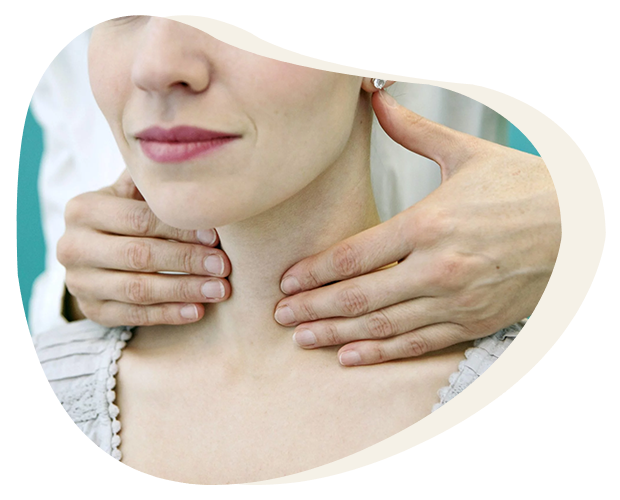Goiter Surgery
What is Goiter Surgery?
It is an enlargement of the thyroid gland, which can be seen with under, normal or over functioning of the thyroid gland located in the lower front part of the neck. The thyroid gland regulates the working speed of our body through the hormones it secretes. It is especially common in people with iodine deficiency and its incidence is high in Turkey.
Goiter may be asymptomatic in some cases and patients may present with complaints of cough, difficulty swallowing, swelling in the neck, pain and rarely breathing difficulties. The symptoms mentioned above may occur as a result of enlargement of the thyroid gland, as well as symptoms caused by the hormone levels secreted by the thyroid gland being lower or higher than they should be. If thyroid hormones are secreted more than normal, headache, dizziness, palpitations, tremors, nervousness, nausea, vomiting and diarrhea may occur. If the hormones secreted by the thyroid gland are less than normal, weight gain, constipation, weakness, dry skin and hair loss may occur.

Suitable Candidates for Goiter Surgery
Goiter surgery is the surgical removal of the thyroid gland due to an abnormal growth or nodule. Suitable candidates are usually individuals who experience severe goiter symptoms and have not responded to conservative treatments. These symptoms may include difficulty breathing or swallowing, aesthetic concerns, cancer risk of thyroid nodules or other serious complications caused by goiter. Thyroid hormone levels may also influence the decision for surgery. However, every patient situation is different, so appropriate candidacy for goiter surgery should be determined after an evaluation by an endocrinologist or surgeon.
Contact Us!
Goiter Surgery Recovery Process
The recovery process after goiter surgery varies depending on the type of surgery, the general health of the patient and the preoperative condition of the thyroid gland. Usually, patients are kept under observation in the hospital for several days immediately after surgery. In the postoperative period, thyroid hormone levels are checked regularly and medication adjustments are made if necessary. Mild pain, swelling and throat discomfort are normal after surgery. Patients should rest and limit physical activity for a certain period of time. Attention should be paid to scar care and medications recommended by the doctor should be used regularly. The healing process is usually completed within a few weeks and patients can return to their normal activities. However, full recovery varies from individual to individual and it is important to follow the doctor’s instructions carefully.

